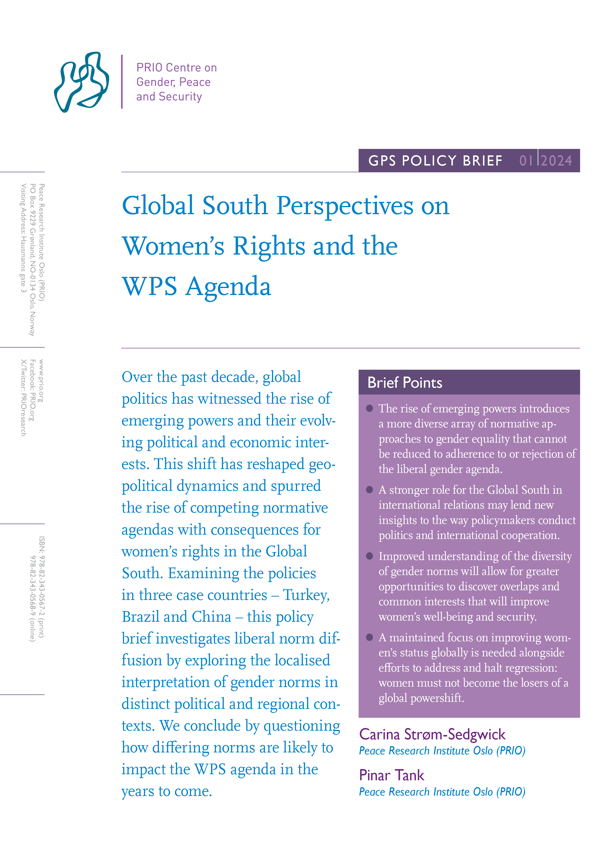Over the past decade, global politics has witnessed the rise of emerging powers and their evolving political and economic interests. This shift, exemplified by countries like China, India, Russia, and regional players such as Turkey, Iran, and Saudi Arabia, has reshaped geopolitical dynamics and spurred the rise of competing normative agendas with consequences for women’s rights in the Global South. Examining the policies in three case countries – Turkey, Brazil and China – this policy brief investigates liberal norm diffusion by exploring the localised interpretation of gender norms in distinct political and regional contexts. We conclude by questioning how differing norms are likely to impact the Women, Peace and Security (WPS) agenda in the years to come.
Strøm-Sedgwick, Carina & Pinar Tank (2024) Global South Perspectives on Women's Rights and the WPS Agenda, GPS Policy Brief, 1. Oslo: PRIO.









